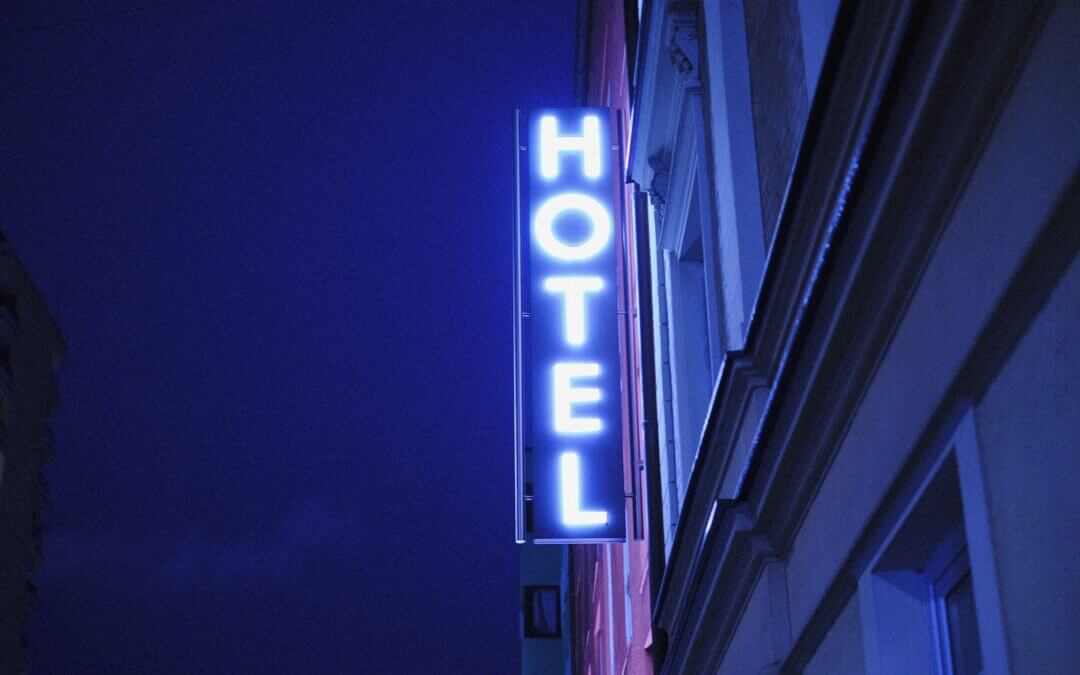
by Jana Johnson | Feb 13, 2024 | Sales
Your hotel’s success depends on many things, but a solid strategy and execution of sales, will create awareness and uncover opportunities capturing your fair share of sales in the market.
Having a full-time on-site salesperson is ideal for carrying out the strategy, but not always manageable for hotels. Another consideration is hiring a remote hotel sales team, which has become the keystone of modern business operations for hotels.
Allowing the remote sales team to foster leads, prospect, negotiate, and build relationships affords you the ability to focus on your guests and the operations side of the business. A seasoned remote sales service team can tailor services to fit your needs with the following focus in place:
New Business Development
Prospecting calls are a proactive strategy to uncover new business opportunities by directly engaging with potential leads. Effective calls hinge on thorough research, a clear value proposition, and personalized communication to convert prospects into clients. There’s an art to dealing with objections and it takes time and persistence to call clients and close business. A remote sales team can work on prospecting and uncovering new business via email marketing campaigns to target meeting planners, corporate contacts, and group business.
Respond to RFPs and Sales Leads
Identifying leads and responding timely is essential in today’s hospitality market, but this takes a bit of legwork. An experienced team can add value by tailoring responses to RFPs and focusing on the nuances of every RFP on your behalf.
Building and Maintaining Relationships
Your hotel staff may be savvy at guest management, but not everyone is cut out for sales. When hiring a team of remote hotel sales professionals, you can be assured they know about building relationships and how to cultivate those relationships over time. This is key to bookings and profits over time.
Marketing Collateral Development
Marketing your hotel is part of the package when it comes to showcasing the unique offerings of your hotel. With your approval, a remote sales team can develop sales material including presentations, flyers to outline special promotions and amenities that will lead to future bookings.
Don’t Let Leads Fall Through the Cracks
A dedicated sales team will prevent leads from falling through the cracks by utilizing a database and implementing a robust follow-up system. With a team devoted to selling, they can prioritize the most valuable leads, respond quickly, and ultimately land the business.
Whether it’s long-term or short-term sales assistance you are looking for, utilizing a remote sales service team with proven and efficient systems along with a collaborative communication process provides an affordable way for you to manage your hotel sales and increase revenue opportunities.

by Jana Johnson | Dec 21, 2023 | Sales, Travel
As we say goodbye to another year, it’s time for forward-thinking hoteliers to capitalize on emerging trends.
Enter the staycation; a simple yet significant opportunity that’s always a winner for New Year’s Eve. It’s a celebration of local exploration and in-house vacations that allow guests to revel in their home city’s charm while enjoying your hotel’s unique hospitality.
Understanding the Staycation Movement
Staycations are decidedly high on nostalgia but also incredibly suitable for the digital age. They offer the triple threat advantage of affordability, convenience, and minimizing travel-related stress. With shifting post-pandemic norms and heightened desires for safety, staycations serve as the perfect answer for those seeking a leisurely escape close to home.
Transforming Spaces into Experiences
Holidaymakers today look beyond the traditional. They seek experiences, not just an overnight stay. An empty rooftop? Morph it into a merry countdown party. A quiet lounge? Spruce it up with live local music for New Year’s Eve. Offer exclusive packages encompassing meals and events – adding irresistible value to the staycation trend.
Amplifying your Reach with SEO
While crafting your new strategy, don’t overlook the power of Search Engine Optimization (SEO). Ensure your website and promotional content integrate relevant staycation-related keywords. This will allow you to attract potential customers from your locality seeking a convenient NYE getaway.
Collaborating Locally for Bigger Impact
Build connections within your community by partnering with local businesses. From restaurants and tourist hotspots to activity centers, these collaborations can accentuate your staycation offerings. Moreover, it strengthens your community ties and adds a dash of local flavor to your services.
Conclusion: Embracing the Staycation Symphony
The staycation trend is not just a fad; it’s a movement reflecting evolving consumer behavior. As we stand on the brink of a New Year, it’s time to adapt, innovate, and incorporate this trend into your grand scheme. Remember, it’s all about creating memorable experiences while brandishing your hotel’s unique attributes.

by Jana Johnson | Nov 28, 2023 | Marketing
In today’s competitive hospitality industry, it is crucial for hotels to find creative and effective ways to market their meeting spaces.
As a hotelier or general manager, you understand the importance of maximizing revenue by attracting meetings and events to your property. In this post, we will discuss some proven strategies to effectively market your hotel’s meeting space and increase bookings.
Showcase Your Unique Selling Points
When marketing your hotel’s meeting space, it is essential to highlight its unique selling points. What makes your meeting space stand out from the competition? Is it a stunning view, state-of-the-art technology, or versatile room layouts? Communicate these features and benefits clearly to potential clients through various channels, such as your website, social media platforms, and promotional materials.
Utilize Compelling Visuals
A picture is worth a thousand words, especially when it comes to marketing your hotel’s meeting space. Invest in professional photography and videography to capture the beauty and functionality of your meeting rooms. Use these visuals on your website, online listings, and social media to entice potential clients. Remember, compelling visuals can leave a lasting impression and make your meeting space more appealing
Leverage Online Platforms
To reach a broader audience and attract meeting planners searching for venues, leverage online platforms dedicated to event planning. Create detailed profiles on popular websites such as Cvent, Loopio, and ConventionPlanit.com. Optimize your listings with relevant keywords and captivating descriptions. Additionally, actively engage with customer reviews and respond promptly to inquiries to build credibility and trust.Develop Partnerships
Collaborating with local businesses and organizations can greatly enhance your marketing efforts. Identify complementary businesses, such as event planners, caterers, or team-building organizations, and establish mutually beneficial partnerships. By referring clients to each other and co-promoting events, you can tap into each other’s networks and attract more bookings for your meeting space.
Offer Special Promotions and Packages
Everyone loves a good deal! Create special promotions and packages specifically tailored to meetings and events. Consider offering discounted rates, complimentary upgrades, or bundled services. These incentives not only attract potential clients but also encourage repeat business and referrals. Clearly communicate the value of these promotions through your website, email marketing, and social media channels.
Provide Exceptional Customer Service
Word-of-mouth marketing is incredibly powerful, especially in the hospitality industry. Ensure that your staff delivers exceptional customer service at every touchpoint. From the initial inquiry to the actual event, make sure your guests feel valued and well taken care of. Happy clients are more likely to share their positive experiences with others, which can lead to an increase in bookings for your meeting space.
Testimonials Endorsements Showcase the Quality of Service
Testimonials are a powerful tool to showcase the successful experiences of past guests at your hotel meetings. Including testimonials in your marketing materials such as flyers or your website, allows you to highlight specific aspects that previous guests found exceptional. Whether it’s the professionalism of your staff, the venue options, or the seamless event coordination, testimonials can highlight these key selling points and provide proof that your hotel is a reliable and trustworthy choice for hosting events.
Conclusion
Marketing your hotel’s meeting space requires a strategic and creative approach. By showcasing unique selling points, utilizing compelling visuals, leveraging online platforms, developing partnerships, offering special promotions, and providing exceptional customer service, you can effectively market your meeting space and attract more bookings. Remember, consistency and innovation are key in staying ahead in the competitive hospitality industry.

by Jana Johnson | Nov 16, 2023 | Marketing
The holiday season is a lucrative time for hoteliers to boost their sales and attract more guests.
With people planning vacations, family gatherings, and festive celebrations, it’s essential to capitalize on this opportunity. By implementing effective strategies and taking advantage of the holiday spirit, you can maximize your hotel sales and make the most out of this holiday season.
Create Irresistible Holiday Packages
When it comes to planning their vacation during the holidays, guests are looking for convenience and value. By creating irresistible holiday packages, you can meet their needs while also boosting your sales. Promote special amenities such as complimentary breakfast, or even discounted tickets to local attractions. This not only adds value for your guests but also differentiates your hotel from competitors in the market.
Decorate and Create a Festive Atmosphere
During the holiday season, people are drawn to places that exude warmth, coziness, and festive spirit. Transform your hotel into a winter wonderland by decorating with beautiful lights, wreaths, and ornaments. Play cheerful holiday music in the lobby, add holiday scents of aromatherapy, and offer seasonal treats like hot chocolate and gingerbread cookies. Creating a festive atmosphere will not only attract more guests but also encourage them to spend more time at your hotel, increasing opportunities for additional sales.
Engage with Your Guests on Social Media
As the holiday season approaches, social media becomes a powerful tool for connecting with potential guests. Use platforms like Facebook, Instagram, and Twitter to showcase your hotel’s holiday offerings and engage with your audience. Share captivating visuals of your decorated property, promote your holiday packages, and run contests or giveaways to generate excitement. By actively participating in social media conversations, you can increase brand awareness, build relationships with potential guests, and ultimately drive more bookings.
Offer Promotions and Special Discounts
Everyone loves a good deal, especially during the holidays when expenses tend to pile up. Attract budget-conscious travelers and increase occupancy rates by offering holiday discounts or promotions. Create time-limited offers, such as “Early Bird Specials” or “Last-Minute Deals,” and promote them across your marketing channels. Make sure to highlight the savings guests will enjoy by booking with your hotel during the holiday season.
Collaborate with Local Businesses
The holidays are all about community and collaboration. Partnering with local businesses can provide unique opportunities to increase your hotel sales. Consider joint promotional campaigns, where you offer exclusive discounts or incentives to customers of partnering businesses. For example, you could collaborate with a nearby restaurant to offer a special holiday dining experience for your guests. By leveraging each other’s customer bases, you can expand your reach and generate more bookings.
Conclusion
With some strategic planning and creative thinking, you can significantly increase hotel sales during the holiday season. From creating enticing holiday packages to engaging with your audience on social media, there are numerous tactics at your disposal. Remember to keep the festive spirit alive throughout your property and always strive to provide exceptional guest experiences. Embrace the holidays and watch your hotel thrive!

by Jana Johnson | Sep 27, 2023 | Sales
In the highly competitive hospitality industry, building and retaining customer loyalty is crucial for the success of any hotel.
Creating exceptional guest experiences that leave a lasting impression is key to ensuring customers return, recommend your establishment to others, and become loyal patrons. Here are some inspirational strategies you can employ to reinforce customer loyalty and encourage repeat hotel stays:
Impeccable Service:
Exemplary customer service should be at the forefront of your hotel’s mission. Train your staff to go above and beyond, exceeding guests’ expectations at every opportunity. Remember, a smile, a warm welcome, and personalized attention can make all the difference.
Personalized Experiences:
Hoteliers can leverage customer data to tailor the guest experience based on individual preferences and past behavior. This could include personalized welcome messages, customized room amenities, or recommendations for nearby attractions based on guests’ interests. By making guests feel valued and understood, personalized experiences foster a sense of belonging and encourage them to choose your hotel for future stays.
Consistent Quality:
Consistency is crucial in earning customer trust and loyalty. Maintain high standards across all areas of your hotel, from cleanliness and comfort to food and beverage offerings. Strive for excellence consistently, without compromising on quality.
Enhanced Communication:
Foster open and transparent communication with your guests. Utilize technology to keep them informed about upcoming events, promotions, or any changes within the hotel. Regularly seeking feedback and genuinely listening to their suggestions can help build trust and improve their overall experience.
Memorable Experiences:
Create memorable moments that guests will cherish long after they leave your hotel. Whether you infuse your hotel with local culture and art or create spaces that provide for Instagrammable moments, offer experiences that go beyond the ordinary and create lasting memories for your guests.
Community Involvement:
Demonstrate your hotel’s commitment to social responsibility by engaging in community initiatives or supporting local causes. Guests appreciate establishments that actively give back to society, and this connection can foster a sense of pride and loyalty towards your brand.
Remember, customer loyalty is built on trust, exceptional service, and memorable experiences. By implementing these strategies with an inspirational mindset, you can strengthen customer loyalty, encourage repeat stays, and ensure your hotel becomes the top choice for all travelers.

by Jana Johnson | Aug 31, 2023 | Marketing
In the hospitality industry, online hotel reviews have become an essential aspect of the decision-making process for travelers.
These reviews provide potential guests with valuable insights into the quality and experiences offered by a hotel. As a result, hotels must pay attention to and manage their online reputation effectively. This article will discuss how hotel reviews can help fuel bookings and the importance of leveraging this powerful tool.
Benefits of Positive Reviews
Positive reviews can significantly impact a hotel’s booking rate. When potential guests come across multiple positive reviews, it cultivates trust and confidence in the hotel’s services. Positive reviews act as endorsements from previous guests, suggesting that the hotel is worthy of consideration. It creates a positive perception, validates the hotel’s offerings, and increases the likelihood of a booking.
Increased Visibility and Exposure
Hotels with a high number of positive reviews tend to rank higher on search engine results pages (SERPs). This increased visibility exposes the hotel to a wider audience, including potential guests who might not have discovered it otherwise. Improved search rankings generate more organic traffic to the hotel’s website, leading to higher booking potential.
Guest Engagement and Loyalty
Reviews provide an avenue for hotels to engage with their guests directly. Responding to both positive and negative reviews allow hoteliers to showcase their commitment to guest satisfaction. Addressing concerns mentioned in negative reviews demonstrates that the hotel values its guests’ feedback and is willing to take steps to improve. Engaging with guests through reviews helps build loyalty, encourages repeat bookings, and promotes positive word-of-mouth.
Competitive Edge
In today’s crowded marketplace, hotels face stiff competition. By actively managing their online reputation and encouraging guests to leave positive reviews, hotels gain a competitive edge. Potential guests are more likely to choose a hotel with a substantial number of positive reviews over those with fewer or no reviews. Positive reviews set a hotel apart from its competitors, positioning it as a trusted and reliable choice.
Hotel reviews play a crucial role in driving bookings. Positive reviews enhance a hotel’s credibility, increase visibility, and promote guest engagement and loyalty. By leveraging the power of online reviews, hotels can differentiate themselves from competitors and attract more potential guests. It is essential for hotels to prioritize their online reputation management and actively encourage guests to share their experiences.

by Jana Johnson | Jul 27, 2023 | Sales
Whether you run a franchised hotel, boutique property, or resort, summer is typically the busy season.
But lurking behind every summer comes a slow period, a time when your sales team is scrambling for ways to fill rooms.
As a hotelier or general manager, you understand the challenges of low occupancy during slow months.
However, there are several innovative strategies you can employ to boost your hotel sales during these periods. In this blog post, we will explore some effective techniques that will not only attract more guests but also increase revenue.
Enhance Your Online Presence
In today’s digital age, it is crucial to have a strong online presence to compete in the hospitality industry. Optimize your hotel’s website with relevant keywords and target local SEO to attract potential guests in your area. Create engaging and informative content on your website’s blog to showcase the unique features and services your hotel offers. Utilize social media platforms to engage with your target audience, share exciting promotions, and encourage user-generated content through contests or giveaways.
Offer Exclusive Packages and Deals
Entice guests during slow months by offering exclusive packages and deals. Create themed packages, such as “Romantic Getaway” or “Family Fun,” that include added value offerings like complimentary breakfast, spa credits, or discounted rates for nearby attractions. Promote these packages through your website, social media channels, and third-party booking sites to reach a wider audience. Highlight the benefits of booking directly with your hotel, such as guaranteed best rates or additional perks.
Collaborate with Local Businesses
Establish partnerships with local businesses to create mutually beneficial arrangements. For example, collaborate with popular restaurants to offer special discounts or vouchers to their patrons, encouraging them to stay at your hotel after enjoying a meal. Similarly, collaborate with local tour operators or event organizers to provide package deals that combine accommodation and experiences. This cross-promotion will not only drive more bookings but also support the local community.
Leverage Email Marketing
Harness the power of email marketing to stay connected with your past and potential guests. Build a reliable email database by offering incentives for visitors to subscribe, such as exclusive discounts or access to insider tips about local attractions. Send personalized promotional emails highlighting upcoming events, limited-time offers, and special packages tailored to your recipients’ preferences. Utilize eye-catching visuals and compelling copy to entice recipients to click through and make a reservation.
Reinforce Customer Loyalty
Nurture your existing customer base during slow months by focusing on customer loyalty. Offer rewards programs that provide incentives for repeat stays, such as complimentary upgrades, late check-outs, or priority reservations. Provide personalized experiences for returning guests, like welcome back amenities or customized itineraries based on their previous preferences. Encourage guests to leave positive reviews on popular review sites, as positive word-of-mouth referrals can significantly impact future bookings.
Conclusion
With the right strategies in place, you can effectively boost your hotel sales during slow months. Enhance your online presence, offer enticing packages, collaborate with local businesses, leverage email marketing, and reinforce customer loyalty. By implementing these techniques, you can attract more guests, increase occupancy rates, and maximize revenue even during traditionally quiet periods.

by Jana Johnson | Jun 29, 2023 | Marketing, Sales
As a hotel owner, you know the importance of marketing your property to attract visitors. But have you considered looking beyond traditional methods and focusing on your local community?
By getting to know your neighbors, you can create lasting relationships that will not only benefit your hotel but also boost the local economy. In this blog post, we’ll explore how to market in your backyard and why it’s important.
Why Local Marketing Matters
Marketing your hotel locally is essential for several reasons. Firstly, it allows you to build meaningful relationships with members of your community, who are more likely to recommend your hotel to friends and family. Secondly, it’s cost-effective since you don’t need to spend money on expensive advertising campaigns. And finally, it helps strengthen the local economy by encouraging people to stay, shop, and eat within the area.
Strategies for Marketing Locally
Here are some effective strategies for marketing your hotel in your backyard:
Host Local Events
Hosting events is an excellent way to get your hotel noticed within the community. You could organize a charity fundraiser, a wine tasting, or even a community clean-up day. By collaborating with other local businesses, you can promote your event to a wider audience and create partnerships that benefit everyone involved.
Leverage Social Media
Social media is a powerful tool for promoting your hotel locally. Ensure your hotel’s social media profiles are up-to-date and active, and engage with other local businesses and customers. You could also consider running social media contests or giveaways to encourage people to share your content and visit your hotel.
Collaborate with Local Businesses
By partnering with other local businesses, you can cross-promote each other and create a network of support. For example, organize a team sales blitz and go door-to-door with printed flyers of your hotel that outline your specific features and benefits. Mention the idea of cross-marketing services to the local businesses. You could offer discounts to customers who have visited a nearby restaurant or store, share coupons for display, or collaborate on a joint marketing campaign.
Marketing your hotel locally is an effective way to build meaningful relationships with members of your community, boost the local economy, and attract visitors. By hosting events, leveraging social media, and collaborating with local businesses, you can create a powerful network that benefits everyone involved.

by Jana Johnson | May 31, 2023 | Sales
Most hotel sales success stories are based on techniques that include the close in the sales strategy from the start.
To seal the deal for group and corporate bookings, you’ll want to make sure during the sales process you provide good advice, add value, and utilize your hotel’s unique amenities and services.
Solidifying the following strategies will help you generate revenue, and make your client feel like they are cared for from the first point of contact until the contract is signed.
Personalize Each Pitch.
Prospects receive many calls and emails each week from hotel sales managers just like yourself. Quality communications that speak directly to the meeting planner’s needs will get the most attention. It’s likely you’ve qualified the client before reaching out to determine that they are your ideal guest. Maybe you’ve determined they hold events that would often require rooms for out-of-area travelers. If so, your initial email shall include information related to the events and event dates that will show that you’ve done your research and that you have a basic understanding of their needs.
Showcase Your Hotel’s Uniqueness.
You can count on the fact that event planners and travel managers are seeing many pitches each week. After awhile they may start to sound the same. That’s why it’s critical to stand out providing your hotel’s unique selling points that revolve around location, comfort, and value.
Be sure to provide the benefits with that first communication to grab their attention and show that you can meet their needs. Is your hotel located within close proximity to an airport, restaurants, or sporting venue? Paint a picture of what it would look like and how convenient it would be for their guests to stay with you.
Every guest is looking for comfort. Business travelers often need access to free Wi-Fi or a business center. Or maybe it’s a fitness center where guests can unwind after a stressful day at work. Whatever your idea of comfort is will also resonate with your guests. Be sure to incorporate these selling points into your pitch.
Adding value and saving your potential guests money, can be extremely desirable for large groups. Consider the value your hotel can bring to their group, whether it’s complimentary breakfast or shuttle service, your guests would like to hear about it.
Provide a Vision of Your Staff’s Customer Service.
A group is typically interested in more than just rooms or a meeting room. They are interested in the customer-focused culture you offer at your hotel and that starts with the first communication made by you.
Other hotels may have amenities you don’t offer, for example, an on-site restaurant, but you can demonstrate the high level of service you offer in other ways. Maybe your hotel has a rewards program you can offer for booking a large group. Other ideas to consider are accommodating a cancelation polity or providing a complimentary room based on a minimum number of paid guest rooms.
Lock in that group booking with electronic contracts that will enable your hotel to secure a signature quickly and easily. Showing how you can offer the best customer service through the booking process is a savvy way to let them experience how you will take care of their guests at check-in and beyond.
Keep an Eye on the Competition.
With many competitor hotels, it sometimes happens that the competition outshines you. Experienced hotel sales managers will want to know what competitor hotels are offering and how they may be snagging business from your hotel.
How do they position their offers? What concessions are they offering in their proposals? Understanding your competitors can help you better position your hotel to achieve your group revenue and room night goals.
Inform and Assist.
Overall, meeting planners want to work with a hotel that understands their goals and can help them meet those goals.
Respond quickly to questions and inquiries and include detailed information keeping the process as uncomplicated as possible. You want them to be able to visualize the experience for their guests. Reiterate the amenities you offer, including all complimentary services and even guest room layouts or floor plans so they can be confident and honored to be partnering with your hotel.

by Jana Johnson | Apr 21, 2023 | Sales
If booking more weddings is a focus for your hotel, you are likely attending one or more wedding vendor events this spring.
There are many kinds of vendor events in your community where you can set up a booth or a table and showcase what your hotel has to offer.
Options for events include bridal and wedding expos, local venues that host weddings and sometimes even wineries.
Why Should My Hotel Participate in Vendor Events?
Setting up a small table at a local event is a great form of advertising for your hotel and gives you the chance to talk to people in your target market. You will also be able to collect contact information from the bride and groom that you can follow up on later. It also allows you to reach more couples and answer questions or even book on the spot. If the event is a success, you should see a nice return on investment for room bookings.
Prepare for the Event:
Once you have found an event to participate in, next prepare for the event by getting yourself and your vendor table ready.
Craft an Elevator Speech
You may be invited to introduce yourself and share highlights about your hotel, so come prepared with an elevator speech that you can use to sell your hotel’s features and benefits.
Focus on what is important to brides and grooms such as your expertise in booking wedding blocks, exceptional service and staff, hotel honors or awards, upgraded suite with blocks for the couple, restaurant, and bar on-site, etc. Also, include a reminder to sign up for a free giveaway!
During the Event:
Have Awesome Giveaways
Set your hotel apart by setting out items you can raffle off or give away, such as an upgraded room, complimentary stay, and food and beverage vouchers. Have the couples write their name, date of the wedding, email address, and phone number to place in a container for a drawing. Let them know you will notify the winner via email.
Standout Vendor Table
Presentation is everything, especially for brides and grooms planning their special day. Make your table shine by dressing it up with a tablecloth that corresponds with hotel brand colors and hotel signage to bring attention to your table.
An event book or framed photo with pictures of the hotel, hotel rooms, banquet room, and outdoor space is also a nice touch.
Also, adding beautiful flowers to your table to match the hotel brand color, or gift boxes filled with a few Hersey kisses sets a nice impression. If you want to add a giveaway in one of the boxes this would add additional excitement.
Vendor Networking for the Win
It is important to visit other vendor tables before and after the event, spending focused time with wedding planners. Use this time to get ideas, exchange business cards, share information, and invite them for a site tour. Remember, these vendors work with multiple event venues and are a great resource and referral to other venues and brides and grooms.
After the Event:
Attendee List for Follow Up
The wedding event isn’t over after the wedding event is over.
Be sure to check with event hosts to see if they will provide a list of brides and grooms in attendance. Having a list of names and email addresses is key so in case you are not able to speak to everyone at the event, it will be easy to reach out to inquire about needs. Also, you will want to send out personable follow-up emails soon after the event for those individuals you met with.
Thank the hosts of the event and bring along extra flowers, candy, or another small token of your appreciation for the invite. This really is appreciated by the hosts!
The wedding industry can be a big revenue source for your hotel considering wedding industry statistics reported a $21.43 billion global market in 2022. Vendor events can be a great way to build your wedding revenue and with a little creativity and know-how, these events can be a fun way to boost your wedding business today.









